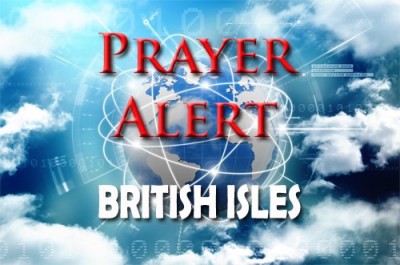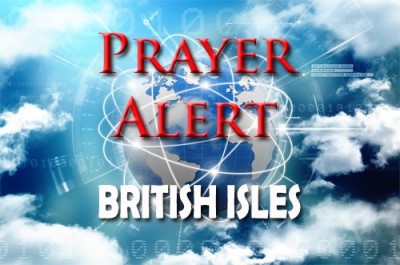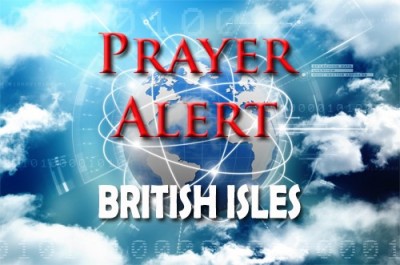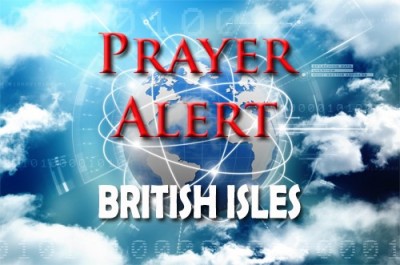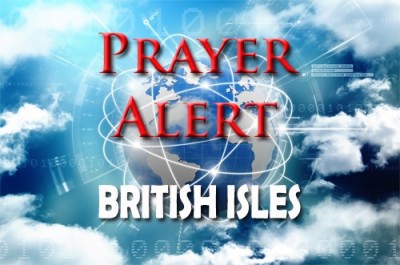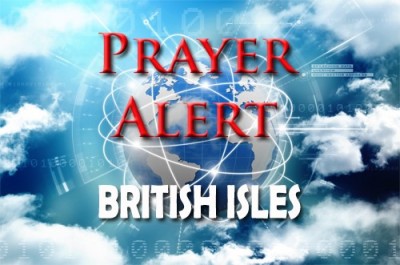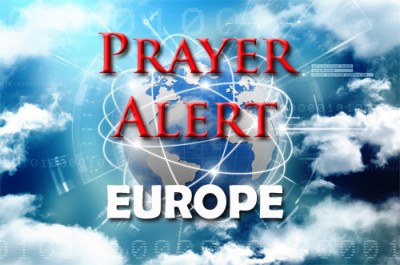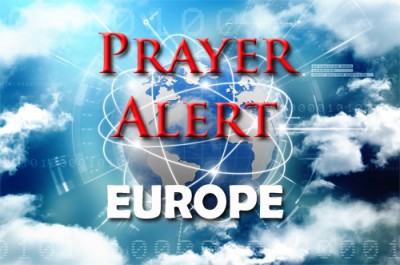Free school meals a biblical principle
29 Oct 2020Steve Chalke has urged the Government to reverse its decision not to extend the free school meals over the holidays until at least Easter. ‘If we believe that we have to provide these children with free school meals, because otherwise they lack the nutrition to be able to grow and thrive and study and succeed during school term times; do we imagine that they can exist on thin air through the six weeks of the summer, or the weeks of Christmas, Easter and half terms? We need to provide a steady ongoing care.’ Currently businesses, local authorities, and community groups have set up to provide thousands of free meals for children in need.
Nazanin in court again
29 Oct 2020Nazanin Zaghari-Ratcliffe was summoned to court in Iran, according to her family, who said she has been told to pack a bag as she will be returned to prison following a hearing on 2 November. Her local MP Tulip Siddiq said the timing of the trial raised ‘serious concerns’ as it follows the postponement of a court hearing about the UK's historic debt to Iran. She added, ‘Nazanin has once again been treated with utter contempt and I am extremely concerned about her future and wellbeing. The fact that she has been told to pack a bag for prison ahead of her court hearing doesn't fill me with confidence that this will be anything close to a fair trial. The timing of this development alongside the postponement of the court hearing raises serious concerns.’
Christians petition to end racial inequality
29 Oct 2020A group of black leaders from across the country, representing many denominations or none and pulled together by the Baptist Union president, have looked at ways of showing solidarity against the real injustices experienced by people of colour in our communities. Petitioning the government is one of those ways. They are encouraging people to sign a parliamentary petition calling for the government to implement recommendations previously raised to tackle the issue. They aim to attract 100,000 signatures so that the petition can be debated in parliament.
Brexit: plenty of predictions, no decisions
29 Oct 2020Michael Gove told the Welsh Brexit minister that Britain could ‘no longer be bound by the Common Fisheries Policy’ and won’t back down on its demands. Spain and Gibraltar want a last-minute deal to avoid having a hard border after Brexit. However a Spanish diplomatic source said they have stumbled on ‘a lack of political will’ in London. Ireland’s foreign minister claimed that a trade deal is now ‘likely’ in the next two weeks, while warning ‘major trade disruption would be the ‘new reality’ even if a UK-EU deal is struck. Bloomberg (an international news agency) thinks that the Brexit negotiators have made good progress in London this week, raising hopes they could ‘inch’ towards a deal by early November. People ‘familiar with the discussions’ claim that the two sides have begun work on the text of an agreement covering level playing field issues, and are close to finalising a joint document covering state aid mechanism.
Hospitals - second wave rolling in
29 Oct 2020The British Association of Critical Care Nurses said that we may have the beds, equipment and Nightingale spaces, but we have limited staff numbers. It won't take much this winter to reach a crisis point (current new transmissions are 96,000 daily).The second wave is placing an ever greater toll on UK hospitals. There are currently over 1,000 Covid admissions daily. Hospitals have started cancelling routine treatments, or announcing some treatments will have to stop. Although admissions are up, they’re nowhere near the numbers last spring. At one point then, 3,000+ patients were admitted daily. Instead, we see a gradual rise. Winter usually has 1,000 people admitted daily for respiratory problems. It is predicted the 2021 flu season will be mild, but we do not know if it will add to the coronavirus workload. Medical staff all share the feeling of exhaustion that has been heightened by long-standing concerns about staff shortages, and deep resentment about pay and conditions. See
Christmas Covid constraints can’t be predicted
29 Oct 2020Geporge Eustice, the environment secretary, has said it's too early to say what Covid rules will be in place by Christmas. He warned that people ‘may not be able to get together in the larger groups that they normally would’. Opposition parties have called for coronavirus rules to be the same across all four UK nations this Christmas. Sage member Sir Mark Walport has said there is little to feel reassured about. He added that there are still many vulnerable people, and ‘it's certainly not unrealistic to think there could be 25,000 people in hospital with Covid by the end of next month. We are better at treating coronavirus but the country is still relatively early in the second wave and there is a significant lag between getting the infection and potentially dying.’
Europe: second wave warning
29 Oct 2020Europe became the coronavirus epicentre in March; then the outbreak subsided in the summer, allowing many to travel and gather in large groups. Now a second wave of infection is wreaking havoc - with over 1.3 million cases in the last 7 days. France, Italy, Spain, and the UK are grappling with record numbers of new cases that could soon dwarf the out-of-control spring outbreaks. Even though Germany, Poland, and the Czech Republic staved off massive spring outbreaks, they now have an unprecedented number of new cases. Europe accounts for 22% of all new infections worldwide. Many city hospitals are swamped and struggle to source life-saving equipment. Europe's centre for disease prevention and control warned against complacency, noting that transmission is as yet mostly between the young. Everyone must obey lockdown rules to keep the European death rate low. See also
Europe: second wave rebellion
29 Oct 2020Europe’s coronavirus restrictions have sparked civil unrest, turning violent, across a number of countries. Civilians are refusing to submit to new strict coronavirus rules. Turin demonstrators took to smashing windows and using smoke bombs, and threw bottles at police officers. In Naples protesters clashed with police in demonstrations against an 11pm to 5am curfew. Southern regions are worst affected by stricter measures. Italians call the shutdowns an injustice. Spanish protesters in Barcelona took to the streets to denounce the second state of emergency in six months. Prague police officers resorted to tear gas and water cannons to break up violent protests. Paris and Marseille also saw protests after a countrywide state of emergency was declared. Anti-lockdown demonstrations are a regular weekend occurrence in London. Willingness by law-abiding citizens to comply with complex regulations is beginning to fray. Only 39% in the UK approve of the government Covid policies.
